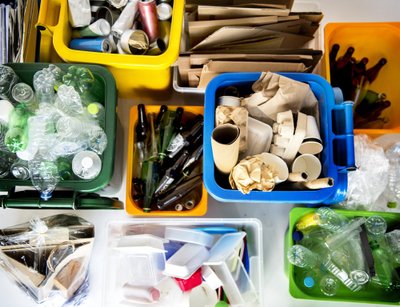Although Lithuania with 75 points and the 36th place is behind the United Kingdom (79.8 points and the 13th place) in the rankings, measuring performance of all 193 United Nations member states in reaching UN Sustainable Development Goals the sustainable consumption behaviour is more prevalent among the respondents in Lithuania than in the UK.
“There are 17 UN Sustainable Development Goals and the responsible consumption and production is only one of them. If we take into consideration such goals as ensuring access to affordable and clean energy, creating a favourable infrastructure to foster innovation or forge global partnerships, the UK is ahead of Lithuania. However, we explored the sustainable consumption behaviour at the individual level and our research results demonstrate that Lithuanians can be pleased with their sustainable consumption habits at home environment”, says KTU SEB Professor Jūratė Banytė.
The findings of the research conducted by KTU scientists illustrate the sustainable consumption behaviour among Lithuanian and the UK respondents. Among the consumption habits explored in the research were avoidance of hoarding or buying only the goods that are necessary at the given moment, modest consumption, avoidance of using disposable cutlery and crockery, taking care of the goods so they last longer, waste sorting, energy saving or giving away goods for circular consumption. The sustainable consumption practices were classified according to the three stages of the consumption process: aquisition, use and disposal.
According to the results of the research, more than 90% of Lithuanian and around 85% of the UK respondents are inclined to buy only those goods, which are needed for immediate consumption, 85% of Lithuanian respondents and only 55% of the UK respondents suggest that they take care of goods so they last longer. With regard to the energy saving, both Lithuanian and the UK respondents are inclined to save electricity (90% in Lithuanian and 80% in the UK) rather than water (66% and 59% respectively).

According to the research, the only indicator of sustainable consumption where the UK is ahead of Lithuania, is the implementation of zero waste ideas.
“This difference might be caused by the fact that the zero waste movement in the United Kingdom is much more known and advanced. Although in Lithuania these practices are just starting to be implemented, our consumers still have a long way to go to adopt zero waste concept into their lives”, says Andželika Žukauskaitė-Tandzegolskė, a researcher at KTU SEB.
However, the researchers emphasise that an important part of the sustainability idea implementation is waste management and circular use of goods.
Approximately 77% of Lithuanian respondents report sorting household waste and 79% indicate that they place the recyclable waste into appropriate containers or recycling stations, whereas among the UK households the proportion of responsible waste management is lower. However, 75% of the UK and only 55% of Lithuanian respondents donate unwanted goods to charity or sell them in second-hand shops.
According to the research, among the most common sustainable consumption practices in both countries are avoidance of hoarding, and among the least established – the circular use of goods.
Overall, the results of the complex research carried out by KTU SEB team revealed both positive trends and tendencies, which require more attention from academics, entrepreneurs, industry representatives, marketers and public policy makers alike.
